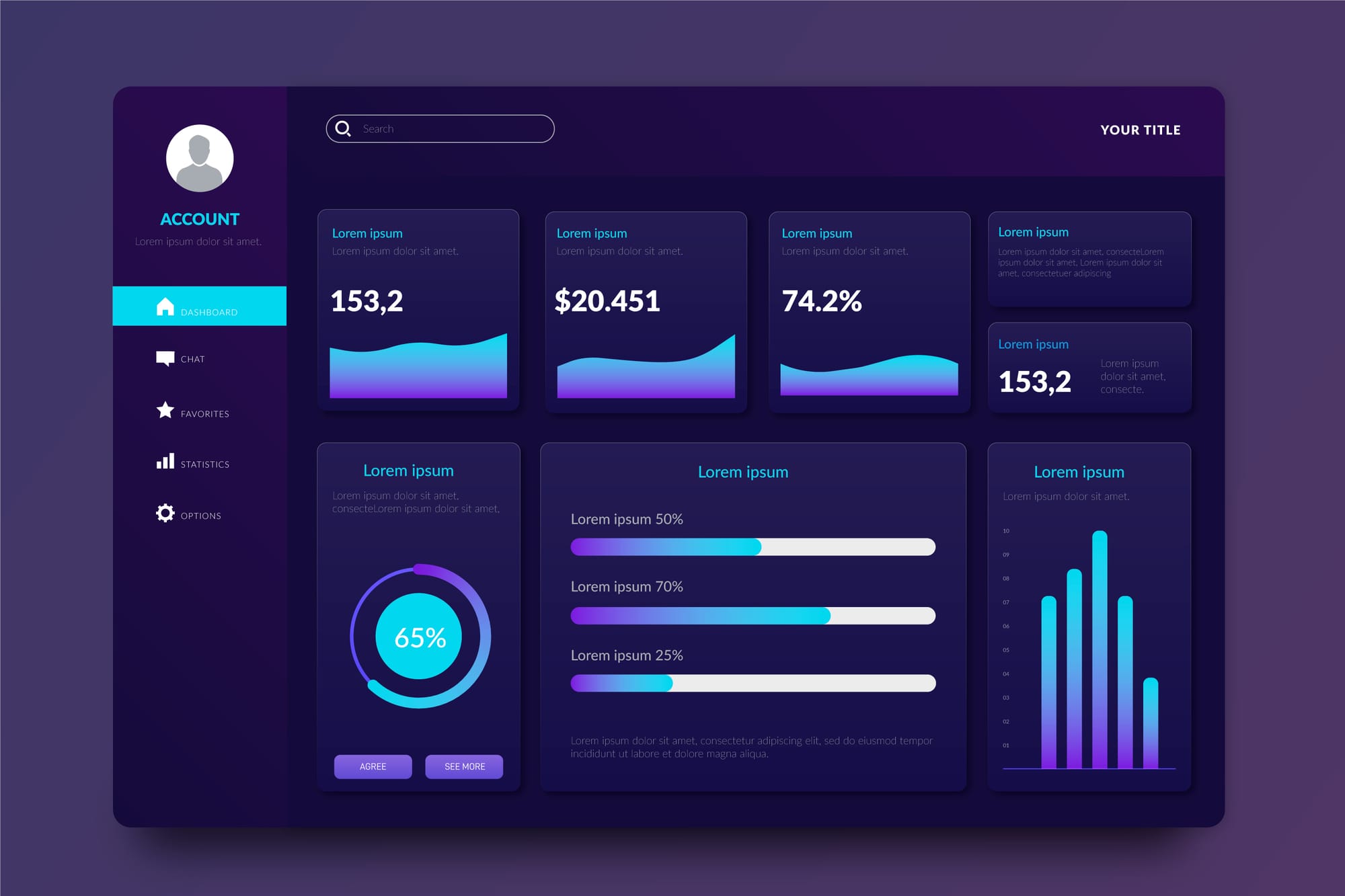Power BI vs. Custom Dashboards: Which Is Right for Your Business?

In a world where data drives decisions, businesses often face a crucial question: should you rely on Power BI dashboards or invest in custom business dashboards? The answer isn’t always straightforward. Each option has strengths and trade-offs, and the right choice depends on your goals, resources, and level of complexity.
At Scalevise, we help companies navigate this choice whether through Power BI consulting or designing custom-built dashboards tailored to your business processes.
Why Dashboards Matter More Than Ever
Executives and teams need real-time insights. But raw data is overwhelming without the right interface. Dashboards provide:
- Clarity: Turning raw data into actionable insights.
- Speed: Enabling quicker decisions with visual overviews.
- Alignment: Keeping teams focused on shared KPIs.
The question isn’t whether you need dashboards it’s which type best fits your organization.
The Case for Power BI Dashboards
Power BI, part of Microsoft’s ecosystem, has become one of the most popular business intelligence tools globally. Here’s why:
- Ease of Integration
Power BI connects natively with Microsoft products (Excel, Teams, Azure) and integrates with hundreds of data sources out of the box. - Cost-Effective
Licensing starts at a relatively low monthly fee, making it accessible for small and medium-sized businesses. - Rapid Deployment
Pre-built templates and drag-and-drop features allow you to get dashboards running quickly without heavy development. - Scalable Analytics
Advanced features like natural language queries and predictive insights make it suitable for both simple reporting and enterprise-scale BI.
Best fit for: Companies already in the Microsoft ecosystem or those looking for a fast, standardized solution.
The Case for Custom Business Dashboards
While Power BI covers many needs, it’s not always enough for businesses with unique processes. Custom dashboards offer:
- Tailored Workflows
Every company is different. Custom solutions align perfectly with your internal KPIs, reporting formats, and user roles. - Unlimited Flexibility
You’re not bound by Power BI’s templates or limitations. Complex logic, advanced visualizations, and multi-system integrations are possible. - Scalability by Design
Dashboards can be built with headless architecture, making them flexible for future growth and changes. - Full Ownership
No license dependencies you control the infrastructure, hosting, and data governance.
Best fit for: High-growth companies, complex organizations, or businesses needing deep integration with proprietary systems.
Power BI vs. Custom Dashboards: A Comparison
| Factor | Power BI Dashboards | Custom Business Dashboards |
|---|---|---|
| Setup speed | Fast (weeks) | Longer (months) |
| Cost | Subscription-based | Higher upfront, no licenses |
| Flexibility | Limited | Unlimited |
| Integration | Great with Microsoft ecosystem | Custom to any stack |
| Scalability | Good, within BI limits | Built for your growth path |
| Ownership | Microsoft controls | Full control |
Which One Is Right for Your Business?
The decision often comes down to priorities:
- If you need a quick, cost-effective solution that integrates with Office 365, start with Power BI.
- If your business has complex processes, industry-specific KPIs, or rapid scaling needs, a custom dashboard is worth the investment.
- Some companies even use both: Power BI for operational overviews, and custom dashboards for strategic or specialized insights.
How Scalevise Helps
At Scalevise, we don’t force a one-size-fits-all answer. Instead, we offer two clear paths:
- Power BI Consulting: We set up efficient dashboards, train your team, and optimize reports to fit your KPIs.
- Custom Dashboard Development: We design scalable, headless solutions that go beyond off-the-shelf BI.
With our expertise in automation and data engineering, we also ensure dashboards are not just visual layers, but connected to workflows that save time and cut costs.
Conclusion
Choosing between Power BI dashboards and custom business dashboards doesn’t have to be overwhelming. The right answer depends on your current ecosystem, future goals, and data complexity.
👉 Want expert advice? Reach out via our contact page to explore which approach aligns best with your business.
